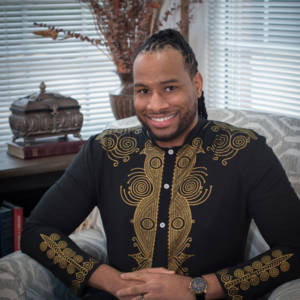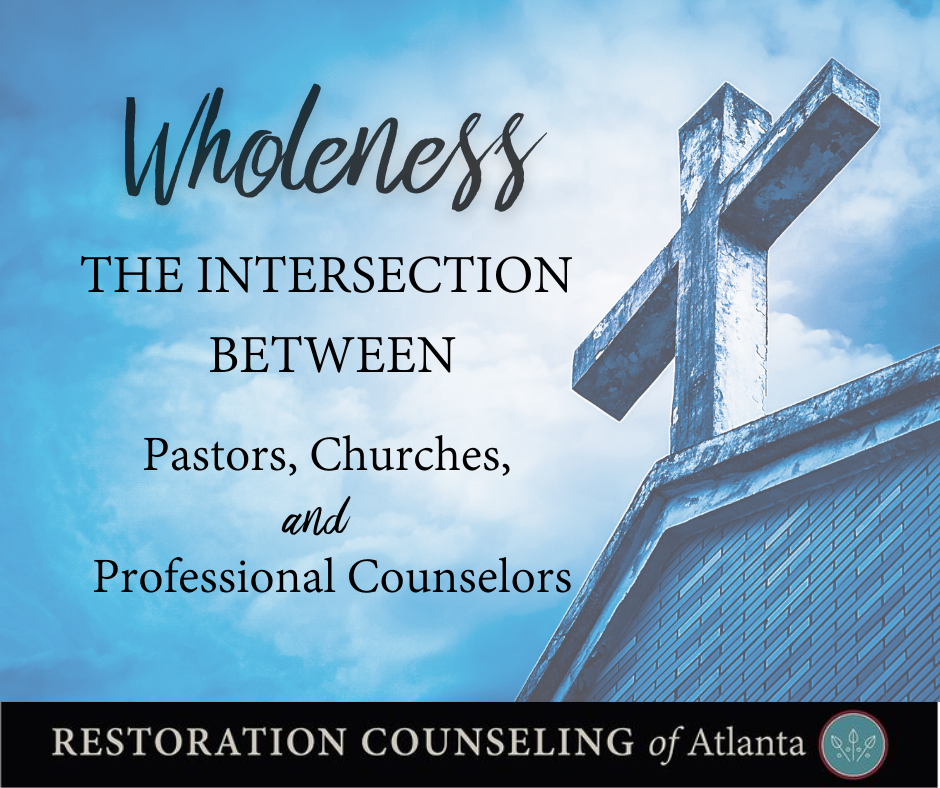The Importance of Professional Mental Health Counseling in Churches
Mental health is a serious topic that has become a prominent focus from the mainstream media to the pews of our congregations. Some churches have done well with incorporating counseling practitioners or even providing counseling centers. Pastors may not realize that members look to them as gatekeepers to acknowledge the importance of quality mental health in their personal life. Scripture offers an excellent basis to demonstrate the importance of cooperation between pastors and mental health practitioners, specifically in Ephesians 4.
11 Now, these are the gifts Christ gave to the church: the apostles, the prophets, the evangelists, and the pastors and teachers. 12 Their responsibility is to equip God’s people to do his work and build up the church, the body of Christ. 13 This will continue until we all come to such unity in our faith and knowledge of God’s Son that we will be mature in the Lord, measuring up to the full and complete standard of Christ.
I believe there could be a handshake between pastors and Christian professional counselors (PCs). As a result, they will accomplish the goal of guiding individuals into spiritual maturity and wholeness. Scripture describes pastors as shepherds, yet today we typically think of them primarily in a teaching role. Uniquely skilled pastors help parishioners practice holiness and live an acceptable life before God. Professional counselors aid the individual in the transformation of their thinking and behavior. These roles overlap, but the body of Christ benefits more from a cooperative relationship between them.
The Role of Pastors in Mental Health
First Timothy 3 outlines the biblical role of pastors internally. They are considered wise, an example of self-control, integrity, to lead a stable family, and possess a favorable reputation. In the mental health context, pastors are encouraged to manage their own mental health and self-care. This happens primarily within their families and serves as an example for their followers.
Pastoral Care
Scripture is the foundation from which church overseers teach, train, correct, and encourage. This oversight often takes place at a corporate level with an eternal focus. Here, biblical principles are collectively shared about how to know Christ, follow his instruction, grow in faith, and pursue godliness. Conversely, the question of pain and suffering is one of the most common doubts encountered by humans. Failure to address these concerns, both theologically and with care toward a person’s experience, can lead to a wounded and embittered individual.
Professional Counselor Care
Certain subject matters (abuse, trauma, depression, anxiety, and relational distress) have many nuances. A Christ-centered PC may be the best person with whom to explore these topics. They operate at a more specialized individual/family level to realign perspective and promote the healing of hurt. Most PCs can help believers understand where the source of their emotional discomfort originated. They may instruct an individual to change the negative patterns that continue or exacerbate their pain. A pastor and PC collaborate to fulfill what 1 Corinthians 12 articulates, that each member of the body of Christ needs each other and is gifted to care for one another.
Recognition of the Need for Collaboration
Leading the flock is an incredibly important responsibility. Pastors who are in denial, unaware of their need for counseling, or dismissive of self-care can find themselves in a place of burnout. That position may lead to neglect of responsibilities or spiritual abuse. Those who consider counseling or therapy unspiritual or for ‘crazy’ people discount the role counselors can play in working with pastors to help align the mind, body, soul, and the will of a believer. As a result, the person may fail to become whole and spiritually mature. Pastors who are open to, or have had positive experiences with counseling, can help remove the negative stigma of therapy. They do this by sharing from the pulpit how therapy has been helpful to them, their family, or other close friends.
Role of the Church Leaders
Pastors are to know their flock and recognize the symptoms, behavior, and beliefs consistent with more common mental health conditions such as anxiety, depression, and low self-esteem. This recognition alone may allow a member to feel seen and cared for. In turn, this may lead to a conversation to direct them to a counselor equipped to help the individual or family understand and overcome these feelings.
Church leaders benefit by understanding more about human personality and can assist in the delegation of leadership and volunteer roles to reduce conflict and allow emerging leaders to thrive. Additionally, attaining knowledge about developmental conditions such as autism, ADHD, and other spectrum disorders serves the body of Christ well. Providing community resources and support for those who typically are overlooked or underserved in society is how we build up the body.
The Role of Integration with Professional Counselors in a Church Context
Importance of Scriptural Counseling
The purpose of mental health counseling is for holistic health, healing from past hurts, the transformation of the mind, and reframing negative behavior, systems, and beliefs. Counselors must be firmly rooted in the truth of scripture themselves, be examples of spiritual maturity, and be a part of a local assembly of believers. PCs need accountability and community support to offset the emotional weight they bear from others. Counselors must prioritize scripture over psychology or social science in their methodology. Most secular theories are completely redeemable once filtered through the Bible. Conversations with church leaders should regularly integrate sound theology with proven mental and behavioral tools that lead to long-term transformation.
The Need for Professional Counselors
Counselors in the assembly are necessary to provide care for members with more deeply rooted issues, addictions, or identity concerns. They can help lead others to the renouncing of ungodly behaviors and increasing self-control. PCs have the flexibility to focus on a specific portion of a client’s treatment plan. They help with the identification of barriers that lead to freedom within. Then they may help set objectives to achieve spiritual growth and optimal mental health.
How Professional Counselors Help
Counselors lead clients through the process of understanding human development and life stages. Also, they encourage applying scripture step by step and developing internal motivation to continue the growth process outside of counseling. Counseling relationships provide emotional stability, coping skills to overcome distress, healthy communication and conflict resolution skills, and help structure positive relational interactions. Counselors are resources to refer people back into churches. In the church, the client should seek to be replanted in a community to grow and find acceptance. There they will discover the spiritual accountability needed to overcome struggles.
The Intersection of Roles
Preparing for a Crisis
Pastors and Professional Counselors both have a role in managing crises. They should attend regular training, workshops, or counseling groups to learn appropriate assessment levels to keep members safe. This education will also help leaders identify their limits. They will learn to recognize the specific issues that will require a referral to a professionally trained counselor or psychologist. This process requires the handshake between PCs, pastors, churches, and Christ-centered counseling agencies.
Creating a Plan for Crisis
After assessing the situation, the church staff may consult or ask for help if they do not know what to do. Pastoral staff must take mental health-related concerns seriously and plan before they find themselves in a crisis. No situation will go perfectly according to plan, but having a plan may provide a road map that can instill confidence rather than panic in staff members. At the very least, churches must have a list of local and national suicide prevention hotlines, support and recovery group numbers, and counseling agency contacts printed and available online.
Pastor or Professional Counselor – Which?
Pastors provide an essential service of pastoral counseling for the stability and growth of their parishioners. Again, leaders in the church can benefit from understanding human development and conflict and crisis management. Grief, premarital counseling, family counseling, and divorce are just a few of the subjects to discuss with either a pastor or PC.
The primary differences between counselors and pastors are the training, tools, and the time commitment of the relationships to their patrons. It is not unusual for a pastor to know an individual or family for several decades and trust to have developed during that time. Many pastors provide support at no cost as a service to the members. Some pastors have extensive training, qualifications, and experiences, while others do not.
To be a professional counselor, you must have a master’s degree and years of experience with a standard set of training and courses. Professional counseling typically enjoys a shorter relational timespan and can be expensive. The best approach to deciding whether to speak with a pastor or PC is to know your issues, ask questions, and do your research.
In Conclusion
Paul stated in Ephesians 4:15-16 that we grow together into Christlikeness. We are joined and held together so that each part makes the body grow, building in love. The roles of pastor and professional counselor are not in competition or contention. They each work toward the unity of the church through which Christ has called his children to be complete.
 by James E. Francis, Jr., EdD, APC
by James E. Francis, Jr., EdD, APC
james@restorationcounselingatl.com
James helps with anxiety, anger, depression, life transitions, resilience, and spiritual maturity. He believes that therapy should be clinically excellent and theologically accurate. He prioritizes the integration of Scripture with elements of psychology to operate a holistic growth model. James uses reflective prayer to help individuals align their beliefs with Scripture. He then walks beside them to promote step-by-step healing from the pain of the past. James’ goal is to hold individuals accountable through encouragement and empowerment by activating their drive toward spiritual maturity.

